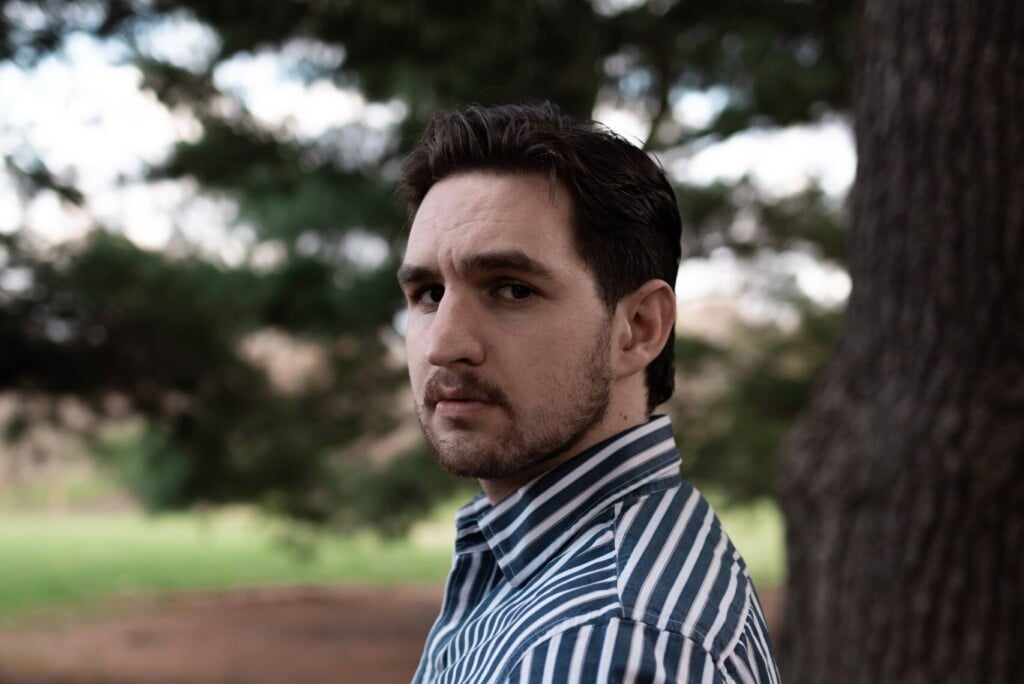All That Jazz
The Suicide Girls are hot. So hot that the touring troupe of tattooed burlesque dancers recently performed a headlining slot at the South by Southwest music festival in Austin, Texas. But though their routines — a drag-king take on “Big Spender,” a pimps-and-hos costume-ball rendition of Ol’ Dirty Bastard’s “Got Your Money” — were capably choreographed, the cut-and-pasties combination of prerecorded backdrops and predictably paced disrobing failed to amaze.
Standard striptease shows — even those that involve gorgeous goth girls — can’t compare with acts that incorporate full-ensemble cabaret-style numbers. Kansas City’s Rushin’ Roulettes qualify as such, but they don’t stop at the sure-thing prospect of six scantily clad, scalding-hot scenesters. They also offer smoldering jazz standards, tear-jerking country laments and full-cast show tunes, all with the assistance of their brother band, the Von Hodads, and serial collaborator Mark Southerland, who is playing traditional tunes for the first time since his UMKC days.
“Live music is always better than canned music,” Southerland says. “It adds to the energy both for the dancer and for the audience.”
Southerland’s striptease-scoring experience started with the Burly-Q Girlie Crew, from which all the Roulettes hail. Headed by Rita Brinkerhoff, the Crew started small with creative costumes and skits set to thematically appropriate piped-in tunes. Eventually, Brinkerhoff recruited Southerland as a musical coordinator. He formed an impromptu improvisational combo called the Invisible Hands Band, which plays only at Burly-Q events. The group’s fluid, flexible scores crest and crash with the Crew’s increasingly involved plots.
Dancer Amie Nelson enjoyed the freedom of the format, the thrill of knowing that the freewheeling backing band wouldn’t miss a beat if she strayed slightly from her rehearsed routines. But she also envisioned a variation on the burlesque blueprint. She found her opportunity when Grand Emporium owner Roger Naber asked Shay Ving, a waitress at the venue as well as a Burly-Q member, to assemble an opening act for a Red Elvises show. Ving and Nelson composed a list of potential participants and enlisted four volunteers from the Burly-Q ranks: Maygun Metzger, Vanessa Fosburgh, Gigi Valentino and Laurel Sears-Rush.
Nelson named the group Russian Roulettes, referencing the country of the Red Elvises’ origin. Metzger, one of the wordplay wizards behind the Brick’s “Carryin’ the Oke,” suggested softening it to Rushin’ Roulettes. Despite the name change, the group played up the theme, purchasing hammer-and-sickle undergarments and adopting red-and-black as its trademark color scheme.
Southerland and his saxophone arrived soon after. He suggested the Von Hodads, a surf and rockabilly instrumental trio, as an appropriate partner. Meanwhile, Hodad’s drummer Dave Molton had already planned to approach Ving about recruiting her to be his band’s singer. The Hodads had their frontwoman, and the Roulettes had their backing band.
The Elvises gig was understandably rudimentary given the Roulettes’ limited preparation period, but the group improved quickly, picking tunes out of the Von Hodads’ massive covers catalog and fleshing out ideas at three-hour weekly practice sessions.
In February, the Roulettes put on a showcase at El Torreon by balancing skits — mechanics, gang rumbles, water skiing, drag racing — with standout musical numbers. Ving handled most of the singing, including a tear-stained version of “Your Cheating Heart” and an alcohol-addled “Stormy Monday” during which she shook and sipped martinis. Nelson talked and teased her way through a sassy reading of Gloria Wood’s “Oh Honey,” and the full cast cashed in on “Big Spender.”
It was a surprising spectacle: torch jazz that did the city’s heritage proud, a dramatic stage show worthy of a theatrical production, and titillating near nudity, all at a punk club.
Ving took voice lessons in high school after a choir director told her she wouldn’t get leads in musicals otherwise, and she headed to New York City to attend Marymount Manhattan. But a combination of homesickness and a disdain for what she calls a “catty and competitive” environment brought her back to the area.
Ving enrolled at Kansas State, where she ceased her artistic extracurriculars.
“I stopped performing, and I stopped feeling like myself,” she says. “Getting back into it has been the best thing in the world because I’m doing it on my own terms now. I’m working with people who have more to offer. It’s like taking ownership of your creativity.”
Nelson had never sung before (except for the Brick’s karaoke night) when Ving encouraged her to become a larger part of the Roulettes’ musical program. She’s working on a few numbers, including Jack Jones’ “Wives and Lovers,” a tune that marries a memorable melody to appalling lyrics (There are girls at the office/And men will always be men/Don’t send him off with your hair still in curlers/You may not see him again).
“You don’t want to lose him, God forbid,” Nelson says sarcastically. “He would leave you if you look terrible. I just need to find my angle, the right way to satire that song.”
But satirizing such sentiments might push the Roulettes closer to feminist performance art, a label Nelson doesn’t embrace without some trepidation.
“I definitely don’t want us to present an automatic image, like we are absolute feminists and we’re not doing this for the men,” she says. “We’re doing this for attention from other people and from each other as well as for the sheer enjoyment and the creative outlet.”
“I don’t think of it on a cultural or historical level,” Ving adds. “I’m just having fun.”




